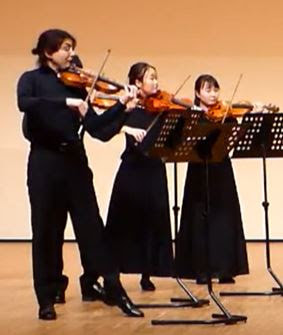 Do you know music theory? Most people studying organizations or managing organizations do not, but maybe that should change. Organizations improve by learning, and a large part of this learning is done by teams. For example, teams are used to drive innovation efforts or more incremental problem-solving or improvement efforts. That is why Administrative Science Quarterly has published an article by Jean-François Harvey, Johnathan Cromwell, Kevin Johnson, and Amy Edmondson using music theory to understand the innovativeness of teams. They followed central principles of music theory, connecting the various ways teams can learn with the principles of tonality, harmony, and rhythm. If this sounds unusual, maybe a look at the details helps? Tonality is the overall arrangement of a musical piece, and the main component is the tonal note, which repeats and supports the rest. For team learning to have tonality, it needs to use a repeatable form of learning with predictable results. Among the different learning approaches, learning from own experience provides tonality, which makes it necessary, but it needs to be combined with other approaches to produce innovation. That is where harmony comes into play. Some learning approaches may have harmony with learning from own experience and can be done simultaneously with it. Specifically, learning from the experience of others is harmonious because it has a similar goal of relatively incremental innovations; it just has different and less predictable results because it is harder to tell what information others can provide. But what happens when teams employ other types of learning that may not be in harmony with learning from one’s own experience? This is when rhythm is crucial. In music, tension can be built by changing between harmony and disharmony over time. The crucial phrase here is “over time.” When teams move from sequences of harmonious learning to disharmonious learning events – such as explorations through making experiments or seeking information from the context – doing so can be very productive if these experiences are spread across teamwork episodes. A team cannot innovate if there is too much harmony all the time, but it also struggles if there is too much conflict or dissonance within the same teamwork episode. Finding a learning rhythm by creating harmony and disharmony across teamwork episodes is key to improving performance. Does this sound overly elaborate and potentially speculative? Well, here is the really good news. All the theory described above was shown to hold both for innovative teams in a field study of an organization and during an experiment involving innovative teams. We all enjoy music, and most of us enjoy it without knowing much music theory. We also benefit from innovations, and some of us try to lead innovative teams. This new research may give all of us good reason to learn some music theory, to explore harmony and rhythm in teamwork, and to see how these lessons can improve organizational life. Harvey, Jean-François, Johnathan Cromwell, Kevin Johnson, and Amy Edmondson. 2023. The Dynamics of Team Learning: Harmony and Rhythm in Teamwork Arrangements for Innovation. Administrative Science Quarterly, forthcoming. |
Blog's objectiveThis blog is devoted to discussions of how events in the news illustrate organizational research and can be explained by organizational theory. It is only updated when I have time to spare. Archives
May 2024
Categories |
 RSS Feed
RSS Feed